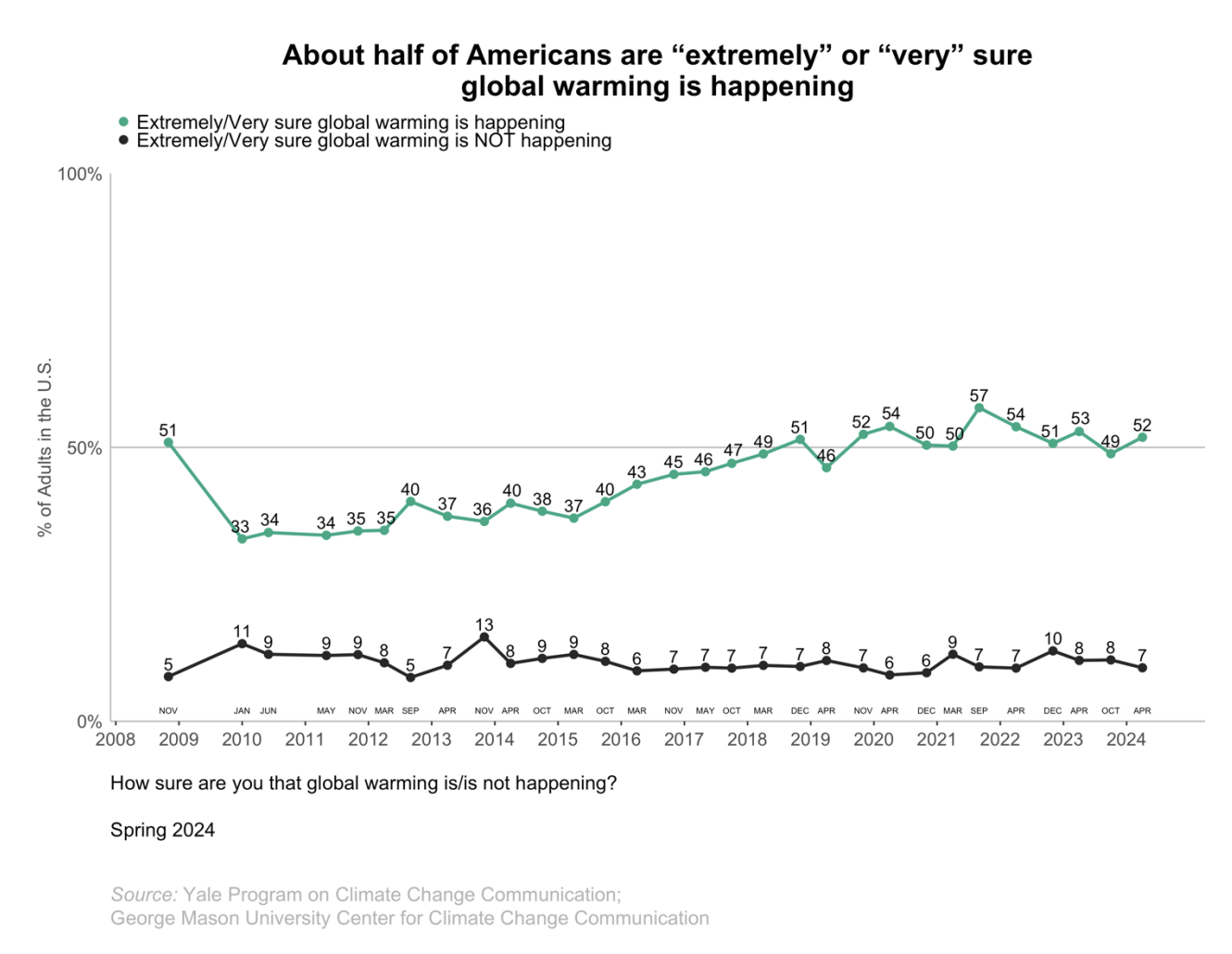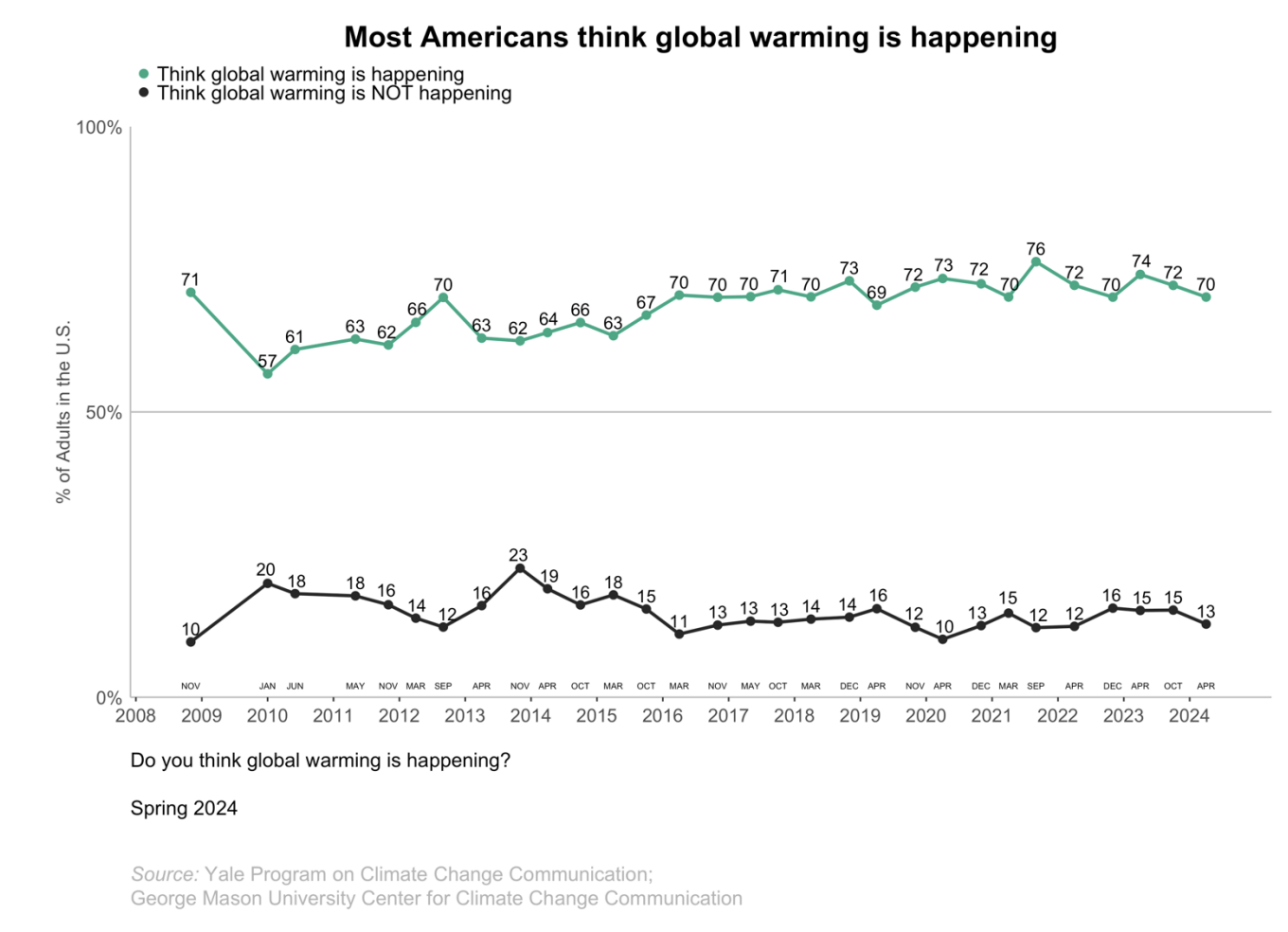Social media amplifies unpopular opinions
A couple weeks ago I linked to a conversation that discussed how social media services can make us think that everything is a 50/50 issue. It also gives us the impression that the angriest, mots extreme voices represent everyone on either side of every issue. This week, Hank Green talked about a graph that he said "changed my life" and I think this graph is a great example of the idea of extreme voices getting amplified.
"Is climate change real?" If a large account with many different types of followers posted that online, the odds are that they'd get a mix of responses that made it seem like this was a 50/50 issue. However, Yale does regular research on public opinion in regards to climate change, and there is a ton of interesting data in their 2024 report. Here's the specific chart Hank said changed his life, showing how many people are very/extremely sure that global warming is happening:

And if we expand this to just whether global warming is happening, yes or no:

The numbers are pretty stark. Basically, if you answered no to this question, you're in the 13% of Americans who feel that way. If you said yes, you're in a massive majority. And even in the "we're losing the science debate so badly we need to pivot to yes it's happening but not because of us" argument, it's still a 2-to-1 ratio, which a gap that's slowly but surely widening.

I just bring this up because I think it's good to remember that this idea that "the other side" always disagrees with you on everything and that they're too far gone to ever change their minds is flat out wrong, and the global warming question is just one example of this phenomenon. We don't get to 70% of Americans believing in global warming without a ton of conservatives being on board, for example.